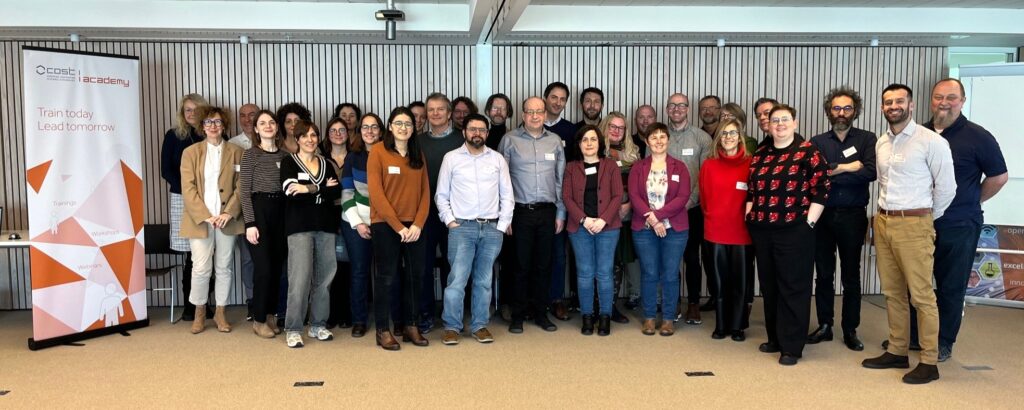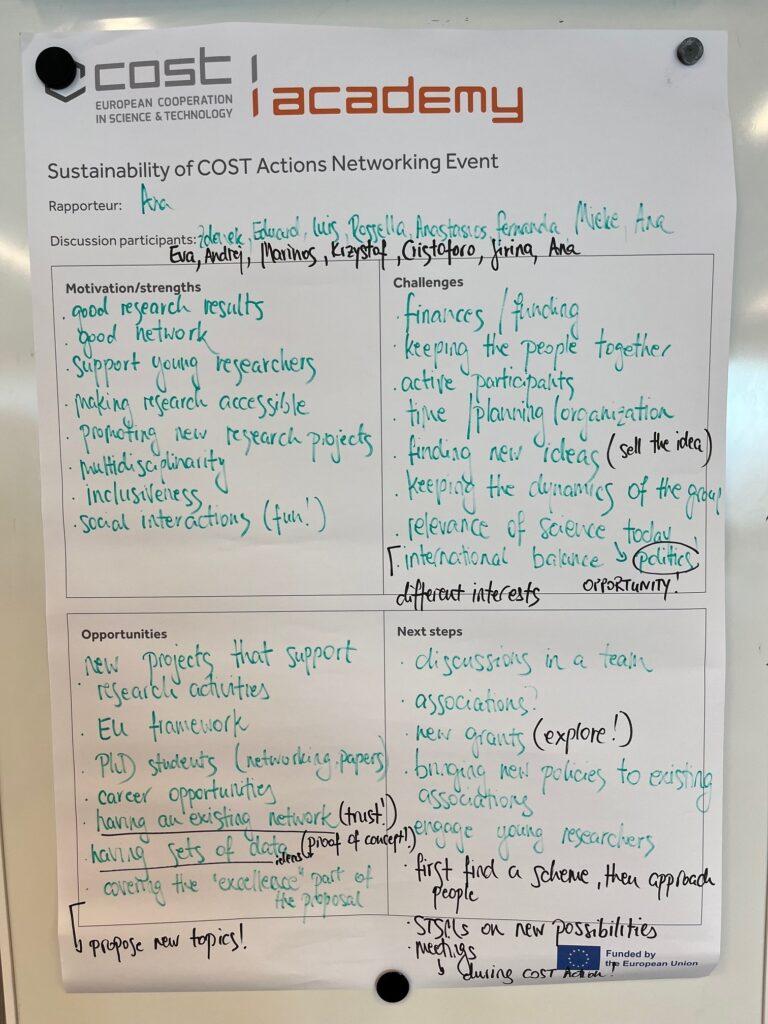Written by Andrej Ficko (University of Ljubljana, Biotechnical faculty)
Trust, Ideas, and Proof of Concept: Key Elements for Sustaining the COST Action Network
The COST Academy – Sustainability of COST Actions Networking Event, held on February 17 in Brussels, brought together researchers and network leaders to explore strategies for ensuring the long-term sustainability of COST Actions. Organised by the COST Association, the event gathered experts from diverse scientific domains to share insights on maintaining collaboration and impact beyond the funded project period. Our vice-chair Prof. Andrej Ficko represented MARGISTAR at the event.
After the opening remarks, participants engaged in small-group discussions, exchanging ideas on ongoing and planned activities aimed at sustaining COST networks. Key speakers included representatives from Ocean4Biotech, Clear Climate, the European Burden of Disease Network, and the BAANG Twinning project. They shared their experiences in securing funding, sustaining networks, and continuing scientific contributions in fields such as marine biotechnology, climate information services, disease monitoring, and aviation energy harvesting.

Training Today – Leading Tomorrow
A panel discussion followed, providing an interactive platform for participants to engage with experts, exchange ideas, and explore best practices in chairing COST Actions and fostering post-action cooperation. The discussion highlighted key differences between social sciences-driven Actions and more engineering-focused ones, addressing challenges such as participant dynamics, resource allocation, and sustaining momentum beyond the funding period.

The event also featured a World Café format, where participants engaged in in-depth discussions, identifying the strengths, opportunities, and challenges of COST Actions. A key takeaway was the emphasis on three essential elements for sustaining collaborative networks: establishing trust among researchers, fostering innovative ideas, and ensuring that these ideas successfully pass the proof-of-concept stage before being developed into project proposals. These factors are critical for the longevity and effectiveness of collaborative efforts.


